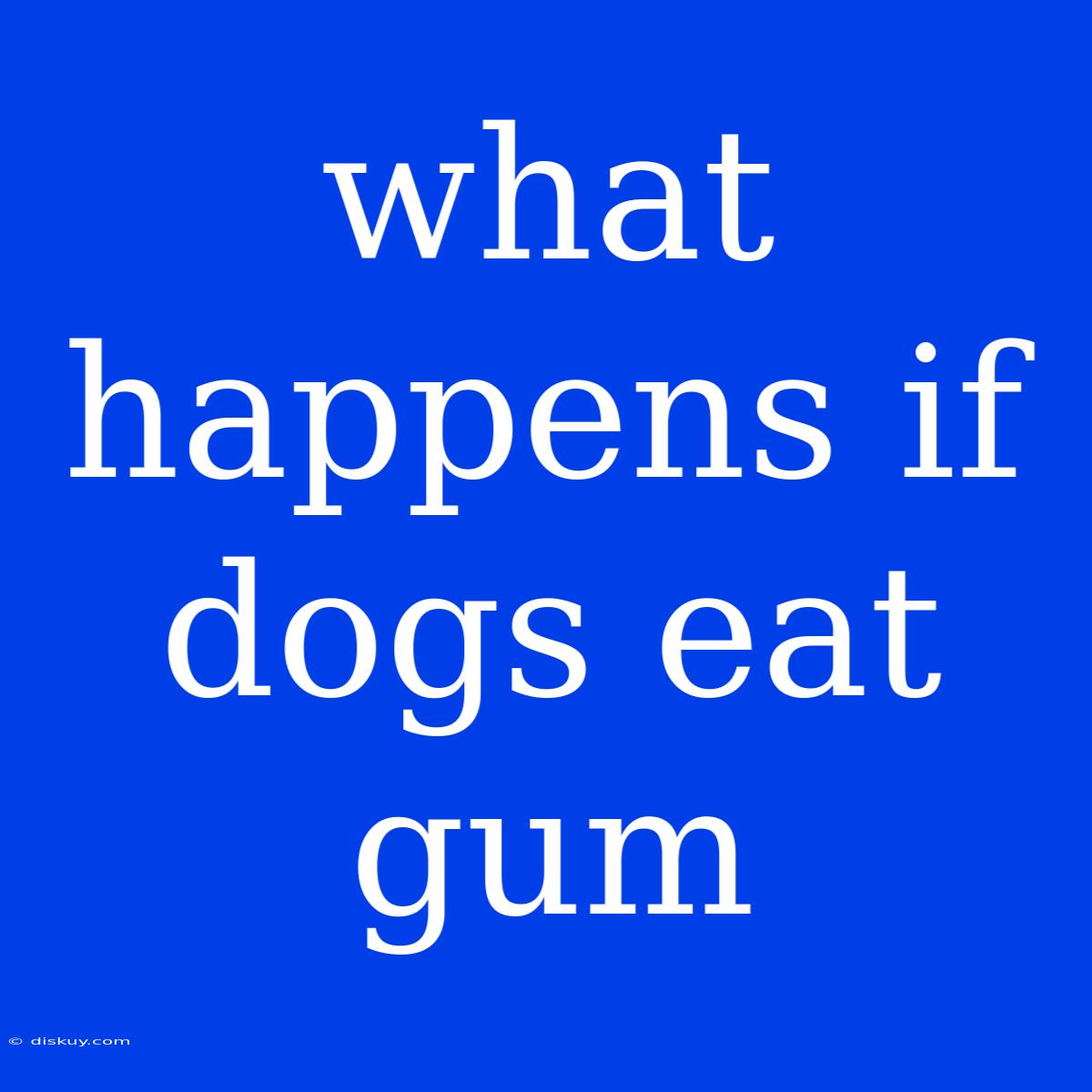What Happens If Dogs Eat Gum? The Shocking Truth You Need to Know
Have you ever wondered what happens if your dog eats gum? The answer is not as simple as you might think. Ingesting chewing gum can be dangerous for dogs, and it's crucial to understand why and what to do if it happens.
Editor Note: This article delves into the potential dangers of dogs consuming chewing gum, providing vital information for pet owners.
This topic is crucial because many pet owners are unaware of the serious consequences gum ingestion can have on their furry friends. It's essential to be informed about the potential risks and know how to act swiftly if your dog eats gum. This article will guide you through the hazards, symptoms, and necessary actions to take.
Our analysis: We have researched extensively, consulting veterinary sources and experts to provide a comprehensive guide on the dangers of dogs eating gum. We've broken down the information into easy-to-understand sections, including key takeaways for a quick overview.
Key Takeaways
| Aspect | Description |
|---|---|
| The Main Danger | Xylitol in sugar-free gum is highly toxic to dogs, even in small amounts. |
| Symptoms | Vomiting, diarrhea, lethargy, loss of coordination, seizures, liver failure. |
| What to Do | Immediately contact your veterinarian. |
| Prevention | Store gum out of reach of dogs, supervise them when around gum, and consider choosing xylitol-free gum alternatives. |
What Happens When Dogs Eat Gum?
Xylitol: The most concerning ingredient in chewing gum for dogs is xylitol, a sugar substitute found in many sugar-free gums and candies. Even small amounts of xylitol can be deadly to dogs.
Effects: Xylitol rapidly enters the bloodstream, causing a surge in insulin production. This results in a drastic drop in blood sugar levels, leading to serious health complications, including:
- Hypoglycemia: This is characterized by symptoms like lethargy, weakness, and loss of coordination.
- Liver Failure: Xylitol can also cause liver damage, leading to severe illness and even death.
Other Potential Dangers:
- Choking Hazard: Even if the gum doesn't contain xylitol, the sticky texture can pose a choking hazard, especially for small dogs.
- Gastrointestinal Issues: Gum can also cause digestive upset, leading to vomiting and diarrhea.
What to Do If Your Dog Eats Gum:
- Identify the Gum: Determine if the gum contains xylitol. Look for the ingredient list on the package.
- Contact Your Veterinarian: Call your vet immediately, even if you're unsure about the gum's contents. They can assess the situation and advise you on the best course of action.
- Monitor Your Dog: Observe your dog for any signs of illness.
- Induce Vomiting: Your veterinarian may advise inducing vomiting, but only under their guidance, as it can be dangerous if done incorrectly.
- Seek Emergency Care: If your dog shows signs of severe illness, such as seizures, loss of consciousness, or difficulty breathing, take them to the nearest emergency veterinary clinic immediately.
Preventing Gum Ingestion
- Secure Storage: Keep all chewing gum, especially sugar-free varieties, out of reach of your dog.
- Supervision: Supervise your dog closely when they're around gum, even if it's not sugar-free.
- Consider Alternatives: Choose xylitol-free gum alternatives for yourself, or consider using other treat options for your dog.
Conclusion
Chewing gum can be dangerous for dogs, particularly if it contains xylitol. Prompt action and awareness are vital to protecting your furry companion. By understanding the risks, being prepared, and taking preventative measures, you can ensure your dog's safety.
Remember: When it comes to your dog's health, it's better to be safe than sorry.

